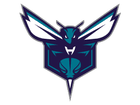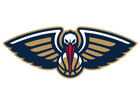Alonzo Mourning: Listen—the owner of the team, George Shinn—you know, he paid (Larry Johnson). And I was next up, you know? My agent said, “Hey, I can get you this with five different teams. You just got to choose which team you want to play for.” I said, “No, I want to stay in...”—I wanted to stay in Charlotte. And David Falk said—he said, “I don’t think Charlotte’s going to pay you this number.” And I said, “Well, you know, I’ll take less money to stay.” So we started having conversations with George Shinn. And he said—uh, and these were his exact words: “You’re not worth that.”


Why did you disappear publicly at that time? If you had just told the people of Charlotte, ‘I’m so sorry. I messed up,’ I think you may have never had to leave Charlotte. — GS: I totally agree with you. I was embarrassed. I made a mistake. I was worried about my children. And it ended up my (then) wife filed for divorce. So my life, at that point, was somewhat destroyed. And I was embarrassed. … So we went to New Orleans. And I started doing the same things in New Orleans. I’m talking about the good stuff, right? I didn’t start screwing around, I can assure you of that. They embraced me and we were really making it work until (Hurricane Katrina) hit. That was devastating.

Charlotte Hornets founder George Shinn has donated $7.5 million to stroke care at Atrium Health, which will name its stroke center at Carolinas Medical Center in his honor, hospital officials said Thursday. In a statement, the NBA team’s former longtime majority owner said he was giving back to the city to which he owes much success.
Silas coached the Hornets until 2003, piloting the franchise through its move to New Orleans. He was fired after leading the team to a strong 47-35 record, but then falling to the Philadelphia 76ers in the first round of the playoffs. Silas laughed when he recalled how he found out about the firing. Reporters had arrived at his door to ask about it, and Silas simply walked next door to team owner George Shinn’s house. “You don’t want to kick my ass, do you?” Shinn asked, according to Silas. “I grabbed him and said, ‘George, you gave me nothing but a great career. I love you man.’ We became buddies after that, but he thought we were going to go at it.”
Advertisement
George Shinn, the former owner of the Charlotte, and New Orleans, Hornets, calls Tuesday from Nashville. He lives outside Nashville and operates his charitable Trulight Foundation there. His message is clear. When New Orleans’ NBA franchise relinquishes the Hornets’ name, Bobcats’ owner Michael Jordan should pounce on it. Shinn, 71, backs up a little and says he isn’t telling Jordan what to do. “If Michael sees fit, I’d like to help,” Shinn says. He says the Hornets nickname would be great for Jordan, Jordan’s team and the community. “It was never my name,” says Shinn. “It belonged to Charlotte.”
According to his employees, Jordan has been sticking to his new plan, stepping away from the draft board and into the boardroom. Jordan, for his part, declined to be interviewed for this story, citing a summer schedule packed with "face of the city" obligations before and during the Democratic National Convention, held at the Bobcats' arena. That's just one part of finally taking on the burden of repairing bridges with the city long ago napalmed by Bob Johnson, who laid off his community relations staff to save cash, and former Hornets owner George Shinn, who relocated the team to New Orleans while keeping his middle finger fully extended.

Sources said the NBA, which acquired the Hornets in December 2010 from founding owner George Shinn to prevent Shinn from selling to an investor who planned to move the franchise out of New Orleans, confirmed the purchase prices. The league paid about $318 million for the Hornets, then contributed additional capital into the last 16 months, reportedly in the neighborhood of $18 million.
The league chose Benson, who will be purchasing the team by himself, over a group of investors including businessman Raj Bhathal and former NBA head coach and general manager Mike Dunleavy, and former minority owner Gary Chouest, who had tried unsuccessfully to buy the team from majority owner George Shinn three years ago. The Bhathal group also included Larry Benson, Tom Benson’s younger brother.

Sources close to Bhathal’s group said Thursday that it has been Bhathal’s focus from the beginning to keep the team in New Orleans and that Bhathal has the financial wherewithal to consummate a purchase. Chouest, the source said, did not want to be a majority owner of the Hornets, but wanted to be involved on a basis similar to his previous minority ownership with founding owner George Shinn. Chouest initially purchased a 25 percent stake in the Hornets and absorbed an additional 10 percent through a series of financial contributions over the years.
Advertisement

Paul consistently expressed a desire to be a Hornet, saying things like, "Right now my position is to win a championship right here in New Orleans." That became untenable, though, when the team's financial prospects were so shaky that the NBA had to take over the team when no local owner stepped in to buy it from George Shinn. How could Paul commit to being an employee when no one committed to being the boss? "Not having an owner played a major part in it," said C.J. Paul, Chris' brother. "Anything could happen."
The authors of the letter were Paul Allen of Portland, Herb Simon on Indiana, Bob Johnson of Charlotte, George Shinn of New Orleans, Larry Miller of Utah, Michael Heisley of Memphis, Glen Taylor of Minnesota and Herb Kohl of Milwaukee. Johnson and Shinn have since sold their teams and Miller has passed away, giving way to his son, Greg. But the situations in those markets haven’t changed. In essence, that letter is the root of the current lockout. And, it is turning out, perhaps a core reason the owners can’t make a deal with the players after more than two years of negotiations.

Since the CBA debate is first and foremost about the money, the financial reasons for eliminating the worst-performing teams couldn't be more compelling. The leader in the clubhouse is New Orleans, and there simply is no close second. The team was taken over by the other 29 owners last December with $90 million from league reserves, a $70 million loan from outgoing owner George Shinn and undisclosed additional debt, according to the Sports Business Journal. (At 3 percent interest and a two-year repayment schedule, that means the league still owes Shinn about $50 million.) Even before the league takeover, the Hornets were a bottomless pit of misallocated resources. According to the '09 statements, the Hornets' ownership group was carrying $111 million in long-term debt, including $73.8 million borrowed from the league credit facility. Of the latter amount, $22.7 million is due in June 2013 -- although previous maturity dates were renegotiated and extended because, obviously, Shinn and his partners were tapped out.

George Shinn said he sold the Hornets for about $50 million less than he could have because he wants the club to remain in New Orleans, and he would be willing to buy back in as a minority investor should a viable Louisiana ownership group come together. Shinn, who has rarely been to New Orleans since selling the club to the NBA in early December, returned Monday to present $500,000 from his foundation to a Salvation Army program aimed at helping the working poor find stable housing. Afterward, Shinn said he plans to donate much of his wealth to charity, and for the same reason, rejected a $350 million offer from Oracle founder and CEO Larry Ellison. "He sent me an offer in writing and I just couldn't find it in my heart to do it," Shinn said, adding that he worried Ellison would move the club to the West Coast.